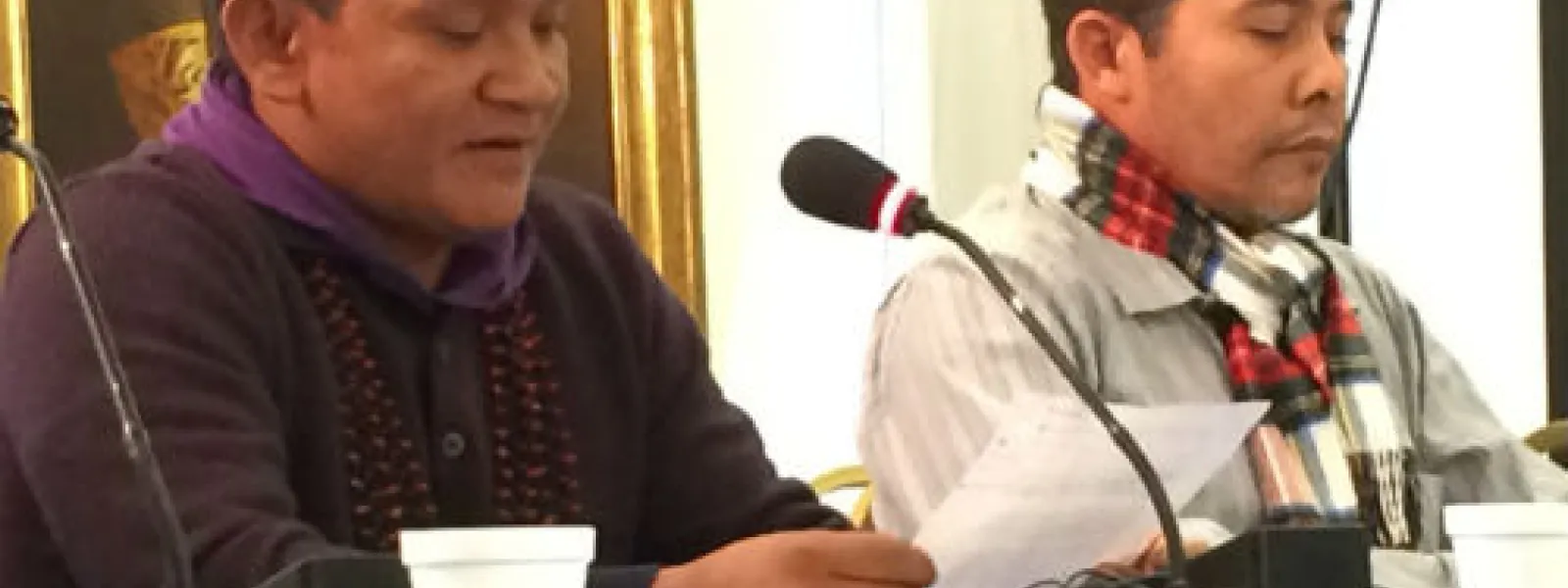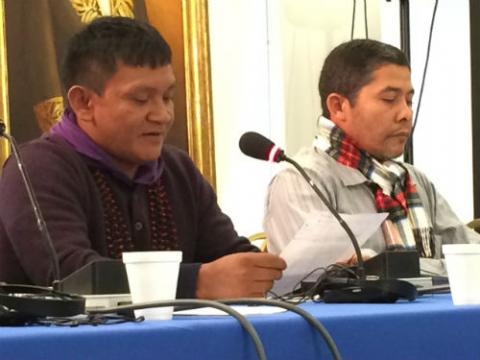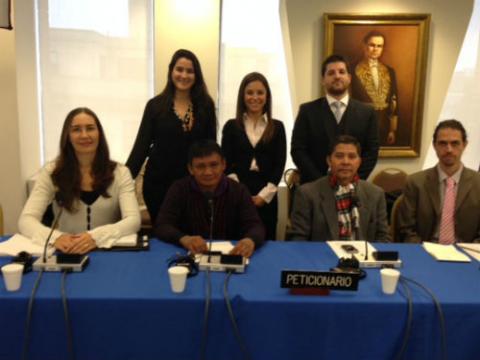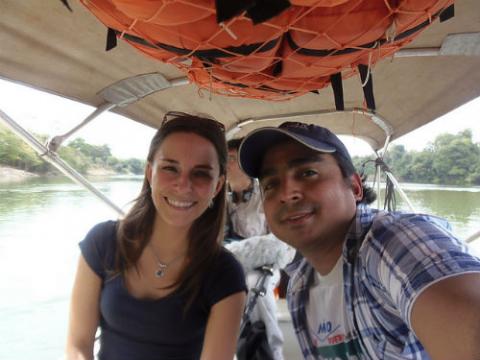
Frustration to hope: Finding the drive to continue from those you help
By María José Veramendi Villa, senior attorney, AIDA, @MaJoVeramendi
I can get frustrated in my work as an environmental and human rights lawyer.
It is frustrating to explain that the work we do on cases of human rights violations may not produce immediate results. It is frustrating to know that our work is a struggle that can take years to find justice for victims and induce change in state policies and our societies. It is frustrating to watch programs designed to protect human rights come under the influence of political interests. The dearth of resources for pursuing these cases is also frustrating. So too are the long waits for justice – or injustice.

So what do we do when we get discouraged?
My answer is to return to the origins, the basics and the very reason for our struggle and commitment: the victims.
I relearned this lesson in March. On a trip to Washington D.C., I met two Brazilian fighters for the cause of their communities: Alaíde Silva and Josías Manhuary Munduruku. Alaíde had traveled for days from Buriticupu, a municipality in the northeastern state of Maranhão, and Josías from Jacareacanga, a municipality in the northern state of Pará, to participate in a hearing (in Spanish and Portuguese) before the Inter-American Commission on Human Rights. They came to present information on how Brazilian judges are continuing to use a law from the country’s 1964-85 dictatorship to violate their right to access to justice.
The law is called Security Suspension. It allows the federal government to request the suspension of judicial rulings. The government has used Security Suspension to invalidate rulings that favor the rights of indigenous peoples and other communities against the development of mega-projects like the Belo Monte hydropower dam in the Amazon. The government can do this on the basis that any adverse rulings to “development” projects are threats to national security or to social and economic order.

At the hearing, Josías described an imminent threat to the Munduruku indigenous community of 11,000 people in 118 villages. The Brazilian government plans to build a hydropower complex (in Spanish) on the Tapajós River and its tributaries—and has not followed a law requiring it to consult the Munduruku and to obtain their prior, free and informed consent.
He said flooding from the project threatens to devastate his people’s land and the survival of their community and culture. He explained how a judge revoked a favorable court decision for his people, allowing the project to continue in open violation of their rights. “We want respect for our land, our river, our sacred sites, our cemetery. And want to be consulted!” Josías said.
Alaíde spoke about a similar plight. He explained how Vale, a Brazilian mining company, is enlarging the Carajás Railroad to the detriment of 1.7 million people in 27 municipalities in Maranhão and Pará and in at least 100 indigenous, Afro-descendants, peasant and urban communities on the banks of the railway.
The railroad stretches 900 kilometers from the Carajás mines in Pará to the Ponta da Madeira Maritime Terminal in Maranhão. It transports iron, manganese, copper and coal. With the expansion, Vale will duplicate 115 kilometers of the line to increase transport capacity and the flow of minerals.
Alaíde said the impacts are vast. These range from the noise pollution caused by the grinding of the train wheels on the tracks and from the train horn, to the running over of people and animals, to the displacement of communities, villages and families without fair compensation. Alaíde provided details on how Vale terrorizes the population, co-opts leaders, intimidates people and spies on social movements, all in the name of meeting its own interests.

As with Tapajós, Security Suspension was used to revoke a court ruling that had favored the communities. That decision had ordered Vale to suspend construction and conduct an environmental impact assessment with a detailed analysis of all the existing indigenous and Afro-descendant communities along the railroad. But with Security Suspension, this ruling was overturned with the argument that suspending the project would affect the economic interests of the state.
These are just two examples of the impact of Security Suspension. There are many more instances in which the rights of communities and people have been affected by major “development” projects justified by “economic interest, public order and safety.”
We hope that cases like these will expose the impact that Security Suspension has on the human rights of hundreds of people and communities, and we hope that this will drive international organizations to call on Brazil to change this legal instrument.
Thanks to everyone who worked so hard to make the hearing possible. Thanks to our colleagues in Brazil without whose work and commitment Alaíde and Josías would never have been able to make the long journey. And thanks to these two Brazilian human rights fighters for a lesson that drives away the fog of frustration and allows the sun to shine again.
I want to dedicate this post to my dear former colleague Joelson Cavalcante, who recently left this world to become a being of light. With him I visited the Xingu River in the Brazilian Amazon for the first time, and I will never forget his happiness and his big smile when, after a year outside his country, he could once again swim in those waters. In his memory, the fight continues.
